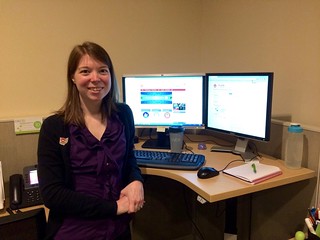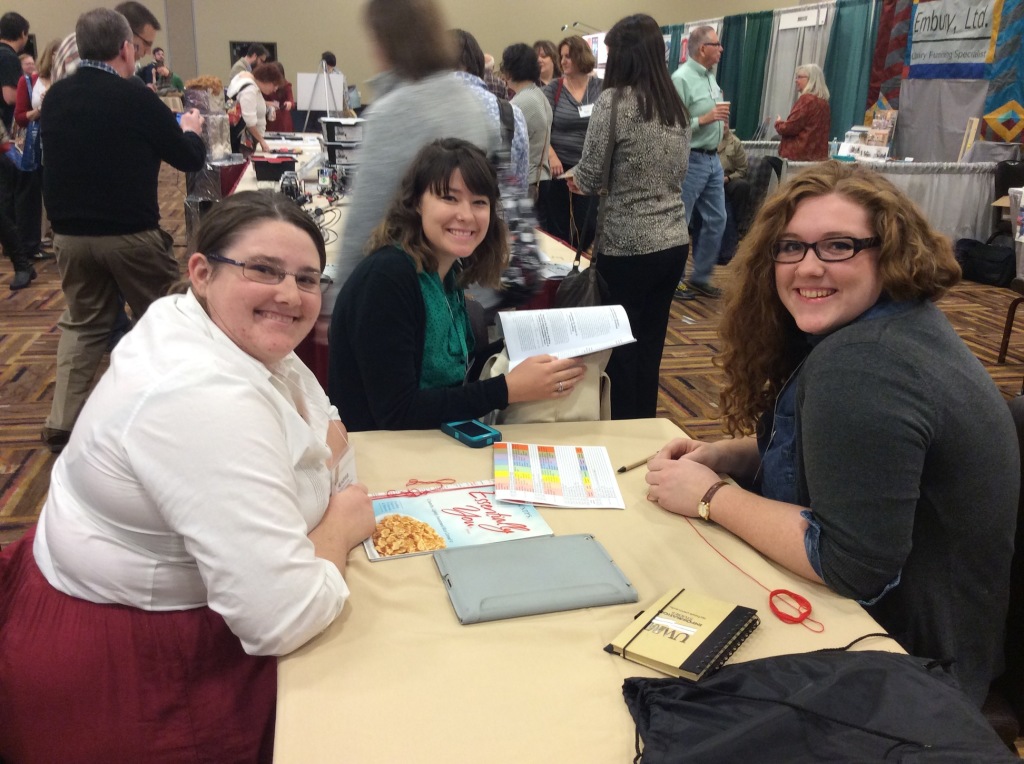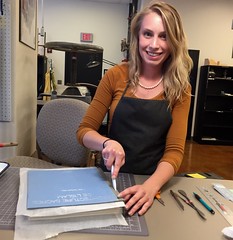 My path to librarianship has felt fluid and fated in many ways. With a multidisciplinary approach to a career in libraries, it is no wonder Lawrence has had such a huge impact on my path. I have always been a lover of books, spending much of my childhood and adult life immersed in literature and libraries. But it was fateful day at Lawrence University that set my sites on the world of books as my career.
My path to librarianship has felt fluid and fated in many ways. With a multidisciplinary approach to a career in libraries, it is no wonder Lawrence has had such a huge impact on my path. I have always been a lover of books, spending much of my childhood and adult life immersed in literature and libraries. But it was fateful day at Lawrence University that set my sites on the world of books as my career.
That day Julie Lindemann and Johnie Shimon took my Intermediate Photography class to the LU Archives, I place I had never stepped foot in throughout my previous time at Lawrence. Erin Dix, the University Archivist, had brought out a collection of glass plate slides for our class to look at and study. She talked about the primary sources overflowing the archives and the unique ways such collections came to their Lawrence home. The best way I can describe that experience of being surrounded by history in those archives… wonderment. The glass slides tapped into a nostalgia and appreciation so deep it became a day and experience I would ever forget.
But that day came and went. While memorable and important looking back, I was not as sure of what I wanted out of life as I began wrapping up my time at Lawrence. After graduating in 2012 with a BA in English and a minor in Studio Art, I spent two years moving around, trying different jobs, and feeling incredibly unsatisfied. And I know I cannot be the only one to have these post-graduation blues and trials. After lots of ups-and-downs in my career path (mostly downs it seemed like at the time), I decided to tap back into that day in the archives. If I could not access a fulfilling career with the credentials I had, it was time to change those credentials.
I applied to six different library programs throughout the United States, and subsequently visited three in person. And to assist in learning more about libraries and archives while I applied, I went back to Lawrence to volunteer with Erin Dix in the University Archives. I loved having an excuse to visit campus each week, and loved even more the amount of skills and information I was able to learn from Erin while I worked with her.
I ended up with an acceptance letter to the top library program in the country, in a small town I had never heard of prior to sending in my application, the Graduate School of Library and Information Science at the University of Illinois at Champaign-Urbana (yes, quite the mouthful). But it was not just the high credentials of the program that drew me to UIUC. My in-person visit assured my of the breadth and depth the program had to offer. Not only would I leave after two years with my Master of Science in Library and Information Science (MSLIS, we library-folk love our acronyms), but I could do it by catering the program to my interests in the fields (there is that multidisciplinary approach coming back in). On top of the academic love for the program I was just accepted to, I also received a Graduate Assistantship in Conservation. Now, I had never even heard of conservation, but what I learned brought back that archives-wonderment feeling. A job that blended books, archives, libraries, and art… yes, yes please.
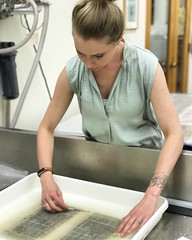
My experience in the conservation lab was nothing short of amazing. I was able to work alongside of incredibly talented and knowledgeable people in the field who offered me insight and training. I was able to work on historical items ranging from the papers of Gregor Mendel to an Ian Fleming collection and beyond. Gaining this incredible work experience alongside of a strong and vast library education gave my career-searching heart everything it was looking for and more.
But graduate school comes to an end all too quickly, and so began a carer-hunt extravaganza. Months of applications, resumes, and cover letters took over any speck of free time that I had while finishing up my grad program. All that work paid off when I took on my current job at the Newberry Library in Chicago as their Conservator for Special Projects. At the Newberry I am greatly involved in the treatment and preparation of the many items that go on exhibit every year, while also continually working on treatment for the vast and varied collections the library houses. (Seriously, these collections are amazing. Next time you are in Chicago, stop by for a visit, the Newberry is free and open to the public, that means you!) Honestly, it is a dream job. It blends my interests of literature and art perfectly. Every day I go to work the library offers new and interesting challenges that bring amazing historic items across my bench. And it is a career that means I will be continually learning—learning new treatments, seeking new insights from other professionals in the field, researching collections and their uses in the library—which means my career will be a constant source of inspiration and enjoyment.
When I started my education at Lawrence I did not foresee where it would lead me, but as I look back from my bench at the Newberry I see a clear path of how I got here. Libraries have so much to offer, and I hope that there are many future librarians sitting in Lawrence’s classes today.
By Kasie Janssen, Class of 2012
 Editor’s note: We invited Lawrence alumni who have gone into library work to share with us what they do and how they got there. Here’s another in a series.
Editor’s note: We invited Lawrence alumni who have gone into library work to share with us what they do and how they got there. Here’s another in a series. 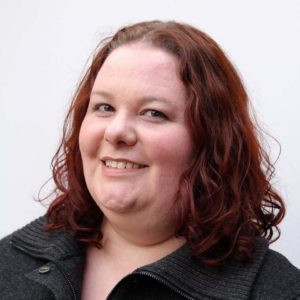 Editor’s note: We invited Lawrence alumni who have gone into library work to share with us what they do and how they got there. Here’s another in a series.
Editor’s note: We invited Lawrence alumni who have gone into library work to share with us what they do and how they got there. Here’s another in a series. 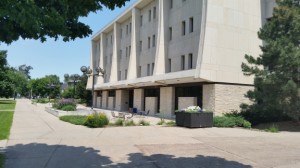
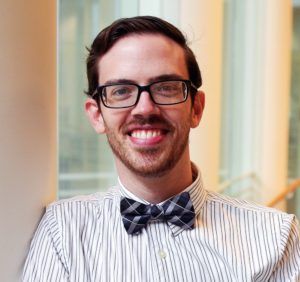 Editor’s note: We invited Lawrence alumni who have gone into library work to share with us what they do and how they got there. Just in time for reunion, here’s another in a series.
Editor’s note: We invited Lawrence alumni who have gone into library work to share with us what they do and how they got there. Just in time for reunion, here’s another in a series. 